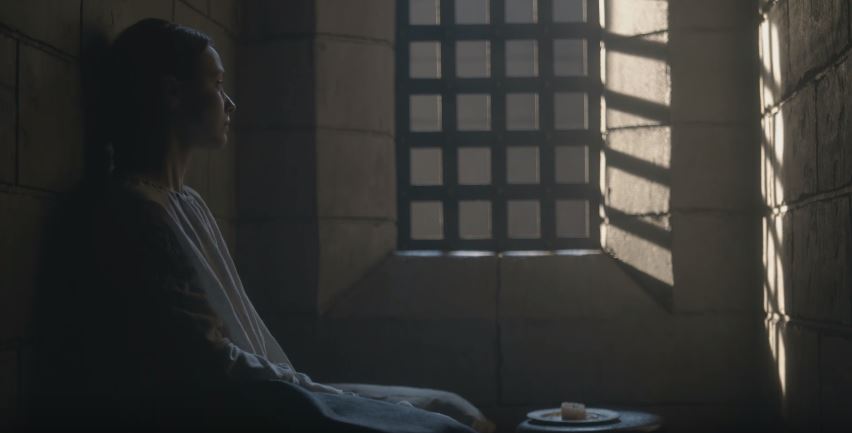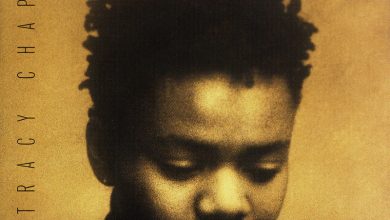Opening the Window: ‘Alias Grace’ and Its Problematic Narrative of Female Entrapment

Image courtesy of CBC via YouTube. / CC BY-NC 2.0
“She’s trapped because we couldn’t open a window…Now she’ll be caught down here forever and ever, sailing back and forth across this hideous dark ocean.”
These words are spoken by Grace Marks (played by Sarah Gadon) following the death of her mother and reflect a major theme of Netflix’s “Alias Grace.” This show is based on Margaret Atwood’s novel of the same name and the real life story of Grace Marks, an Irish immigrant convicted of murdering her employer and his housekeeper in 1843. In the show and Atwood’s novel, Grace tells the story of her life and the murders through the frame narrative of being psychiatrically evaluated for the purpose of getting released early from her imprisonment.
Much of “Alias Grace” revolves around how women are trapped and oppressed by the patriarchal society that they live in. From the unreliability of Grace’s narration to the ways in which the female characters are treated as expendable by the men around them, the show constantly circles back to how few options these women have and how little power they possess in relation to men. One metaphor that is used multiple times to represent these themes in the show is that of the ‘window’.
The ‘window’ metaphor in “Alias Grace” is told to a 12-year-old Grace by another Irish immigrant after her mother’s death on their naval journey to Canada. This woman explains to Grace that, when a person dies inside somewhere, a window must be opened to release their soul or else they’ll be trapped inside forever. This real-life superstition is repeatedly brought up with the death of Grace’s mother, her best friend, and the housekeeper.
This ‘window’ metaphor seems particularly gendered considering the places where both the male and female characters die throughout the episodes. Grace’s employer Thomas Kinnear (played by Paul Gross) gets shot right before he can re-enter his house, and James McDermott (played by Kerr Logan), Grace’s supposed accomplice in the murders, is executed by being hanged outside. Therefore, both of the male characters specifically die outside. The female characters, however, all die inside. Grace’s mother dies of an illness inside of a ship. Her best friend Mary Whitney (played by Rebecca Liddiard) dies from blood loss inside her room with Grace after receiving an improper, violent abortion. The housekeeper Nancy Montgomery (played by Anna Paquin), who is first attacked outside by James, is then purposefully brought to the basement and murdered there.
By having this dichotomy of the men always dying outside and the women always dying inside, the ‘window’ metaphor only ever applies to women. The women who die need someone else to help them free their souls by opening a window, while the men’s souls automatically pass on because they are already outside upon death. In this way, the female characters are denied agency even in death.
This lack of female agency demonstrates how the ‘window’ metaphor of “Alias Grace” is representative of the entrapments of womanhood in patriarchal society. Women are forced to stay ‘inside’ and thus in a passive, domestic space. Men, on the other hand, have better options and the chance for greater mobility and freedom in the world.
Atwood’s interpretation of the reality of Grace Marks chooses to highlight the horrors that result from the enforcement of strict gender roles and society’s demeaning view of women. The ‘window’ metaphor, along with elements like the quilt imagery representing domestic entrapment through the marriage bed, attempts to encapsulate these messages and convey them as relatable problems for all women. However, “Alias Grace” is not free of its own faults, and its problematic lack of people of color and specifically women of color muddies its intended representative themes.
Throughout all six episodes of the show, issues of race are basically swept under the proverbial rug and forgotten. Grace’s status as an Irish immigrant is never touched on again past the first episode, despite the discrimination towards this group in Canada at the time. In the second episode, Mary Whitney says that her grandmother was an Indigenous woman of either the United States or Canada, but this never seems to factor in to her fate, and no information seems to exist on whether her actress, Rebecca Liddiard, is actually descended from Indigenous peoples or not.
The one definitive woman of color in the show is Clarrie (played by Lisa Codrington), but she only appears for approximately three minutes in the fifth episode. Since slavery was abolished in Canada in the story, she seems to be a maid like Grace, with her dialogue implying further that she or her family were slaves in the past: “Afraid of you for rising up against your master? Miss Grace, where do you think I come from?” Her presence and words here could have possibly provided more inclusivity to the show’s message on women’s oppression, but she only gives Grace some plot information after this and stands in the background for a scene before her screen time ends.
If the show had allowed for Clarrie to share her perspective and experiences with patriarchal society as a Black woman in the 19th century, its themes would have been much more relatable and representative of women from different racial backgrounds. This is not the case however, so it appears as a solely white woman’s narrative. Ironically, “Alias Grace” falls into a twisted version of its own metaphor: it tries to keep the window open and invite all women to embrace its message but instead firmly closes it shut, blocking many from appreciating its words and trapping itself with a seeming air of white feminism.




